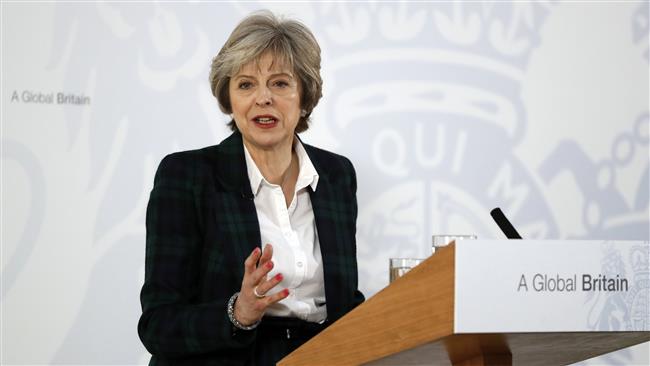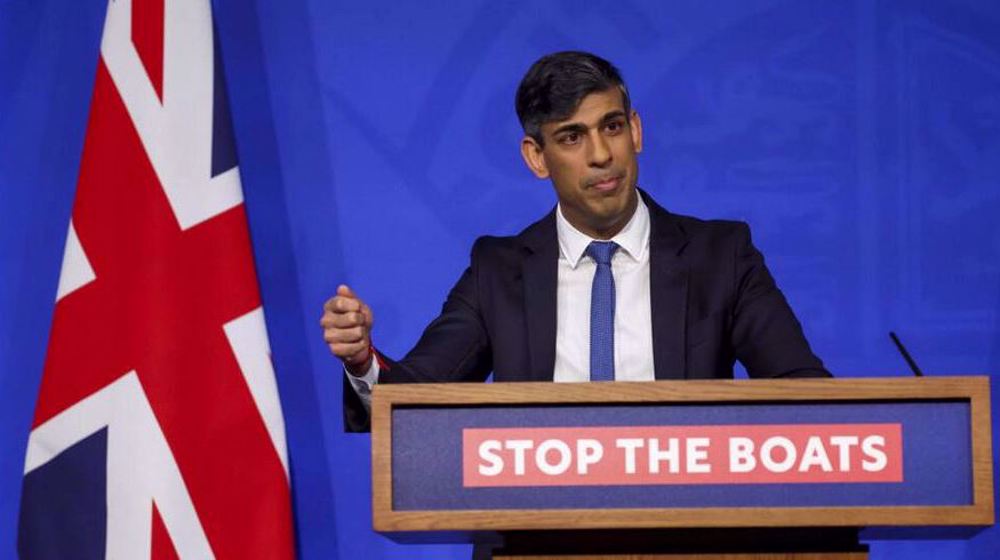Theresa May says UK to leave EU single market after Brexit
UK Prime Minister Theresa May says Britain will leave the European Union’s single market in order to restrict immigration in a clean break from the bloc, but the Parliament can vote on the final Brexit deal.
"Brexit must mean control of the number of people coming from Europe, and that is what we will deliver. What I am proposing cannot mean membership of the single market," May said Tuesday during a long-awaited speech at London's Lancaster House.
The prime minister said any Brexit agreement must be approved by both chambers of Britain's parliament, the House of Commons and the House of Lords.
She also said London would seek a trade deal giving "the greatest possible access" to the EU market on its departure.
Seeking to lessen concerns about a sudden shock to the economy on abruptly leaving the EU, May said she would seek a "phased process of implementation" of a Brexit deal.
EU countries accounted for about 44 percent of Britain's total exports in goods and services in 2015, with the country recording an $82.7 billion (77.9 billion euros) trade deficit with the bloc.
May has promised to trigger Article 50 of the EU's Lisbon Treaty by the end of March, and said that she believed a final settlement and trade deal could be simultaneously negotiated within the timeframe.
Once Article 50 is triggered by an EU member state, there is a two-year time limit to complete negotiations. If negotiations fail to reach agreement, the member state leaves the bloc with nothing.
In a landmark referendum held on June 23, nearly 52 percent of British voters, amounting to more than 17 million citizens, opted to leave the EU, a decision that sent shock waves throughout the world.
Those in favor of a British withdrawal from the EU argued that outside the bloc, London would be better positioned to conduct its own trade negotiations, better able to control immigration and free from what they believe to be excessive EU regulations and bureaucracy.
Those in favor of remaining in the bloc believed that leaving it would risk the UK's prosperity, diminish its influence over world affairs, and result in trade barriers between the UK and the EU.
Retaining access to the single market has been one of the major worries for UK businesses ever since the referendum.
VIDEO | Press TV's news headlines
US troopers crack down on pro-Palestinian protests at University of Texas
VIDEO | German warship departs Red Sea as EU 'naval mission' fails
VIDEO | Palestinians inspect rubble of destroyed building in Rafah
Yemeni forces strike US, Israeli vessels in fresh pro-Palestinian operations
‘Say no to Biden’: US college being pressed not to endorse genocide
VIDEO | UN: Alarming food insecurity crisis grips Afghanistan
VIDEO | Stuck in quagmire










 This makes it easy to access the Press TV website
This makes it easy to access the Press TV website